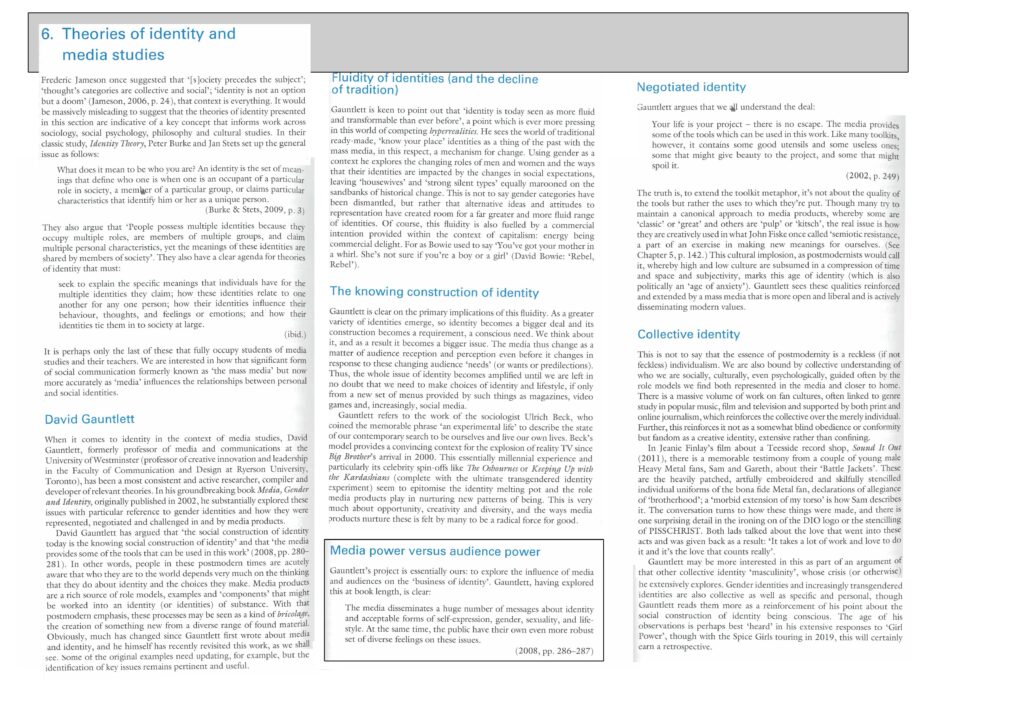For an A level you will need theory.
Theory helps us to understand what we do. So that what we do, we may do better. You will find that theories are informed and underpinned by key language – it is really important that you use key language if you want to score high grades in (all) of your A levels.
So let’s start with . . .
TALKING ABOUT OURSELVES!! AS THAT’S WHAT WE LIKE DOING BEST!
IDENTITY AND SELF
In this crazy video Ron Gallo is carrying around a box called ‘self’, so what is he trying to tell us in this story? That we are always looking for ourselves? That self-discovery is the journey of life? That it is the journey that makes gives us a ‘self’? That the self is ultimately undiscoverable?
So how can we understand the self? Well one way is to ask questions and to tell stories. It’s a process of someone interacting with someone else to discover who they (both those asking and those answering) are?
So, that’s what we will do.
Let’s start that process by trying to uncover something interesting (yes building up a bit of interesting narrative or story) from interacting with someone else – but as much as possible please try to keep in groups of 3 (it’s magic remember?)
Erving Goffman
Erving Goffman raised the concept of The Presentation of The Self in Everyday Life (1956) which proposed an idea of ‘the self‘ as divided between the ‘front’ and ‘back’ regions, in essence this means that individuals present an idea of themselves in different moments of interaction. This is useful in terms of Media Studies, because media representations of the self – think for example of ‘the selfie‘ alongside a whole host of social media platforms – provide spaces to play out and perform representations of the self.
So there is a distortion of ‘reality’
Johari Window
The ‘Johari Window‘ developed by Joseph Luft and Harrington Ingham in 1955, presents a grid model of four distinct elements that form a representation and identity of ‘the self’, which suggests that we form multiple understandings of our ‘selves‘ primarily in four main contexts:

David Gauntlett Understanding Identity


